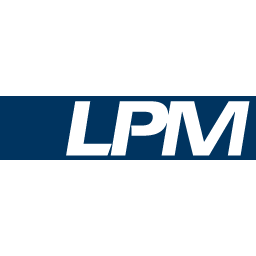Polycarbonate with FDA approval (PC FDA)
We use this material in the following process(es):
- Extrusion.
Extruded profiles and semifinished products - Machined parts.
Lathed and milled parts in single and serial production - Injection moulding.
Injection moulded parts up to 16000 g
General properties |
|||
| Material number | 2306 | ||
| Density | ISO 1183 | 1,20 | g/cm³ |
| Transparency | kl | ||
| Condition of the test specimen | |||
Mechanical properties |
|||
| Stress at yield | ISO 527 | 66 | MPa |
| Tensile strength | ISO 527 | – | MPa |
| Elongation at break | ISO 527 | >80 | % |
| Tensile modulus | ISO 527 | 2400 | MPa |
| Tensile creep modulus (0,5% 1000h) | ISO 899-1 | 1900 | MPa |
| Flexural strength | ISO 178 | 70 15) | MPa |
| Flexural fatigue strength (107 cycles) | ASTM D671 | – | MPa |
| Ball pressure hardness | ISO 2039-1 | 110 | MPa |
| Standard for ball pressure hardness | H358 / 30 | ||
| Hardness Shore (A/D) or Rockwell (R/L/M) | ISO 868, ISO 2039-2 | M70 | - |
| Izod impact strength 23 °C | ISO 180/1C | NB | KJ/m² |
| Izod impact strength -30 °C | ISO 180/1C | NB | KJ/m² |
| Izod notched impact strength 23 °C | ISO 180/1A | na | KJ/m² |
| Izod notched impact strength -30 °C | ISO 180/1A | na | KJ/m² |
| Charpy impact strength 23 °C | ISO 179/1eU | NB | KJ/m² |
| Charpy impact strength -30 °C | ISO 179/1eU | NB | KJ/m² |
| Charpy notched impact strength 23 °C | ISO 179/1eA | na | KJ/m² |
| Charpy notched impact strength -30 °C | ISO 179/1eA | na | KJ/m² |
| Izod notched impact strength 23 °C | ISO 180/4A | 900 | J/m |
| Izod notched impact strength -40 °C | ISO 180/4A | – | J/m |
| Friction against steel without lubrication | – | - | |
| Abrasion relative to pressure | – | (µm/km)/MPa | |
Electrical properties |
|||
| Dielectric constant 50 Hz | IEC 60250 | 3,1 | - |
| Dielectric constant 1 MHz | IEC 60250 | 3,0 | - |
| Dissipation factor 50 Hz | IEC 60250 | 5 | 10-4 |
| Dissipation factor 1 MHz | IEC 60250 | 90 | 10-4 |
| Dielectric strength | IEC 60243-1 | 34 | kV/mm |
| Thickness for electric strength | 1,0 | mm | |
| Volume resistivity | IEC 60093 | >1E13 | Ω · m |
| Surface resistivity | IEC 60093 | 1E15 | Ω |
| Comparative tracking index | IEC 60112 | 250 | - |
| Comparative tracking index CTI M | IEC 60112 | – | - |
Thermal properties |
|||
| Thermal conductance | ISO 22007 | 0,21 | W/K m |
| Specific heat | IEC 1006 | 1,17 | J/g K |
| Linear thermal expansion along|cross to direction of flow | ISO 11359 | 65 | 10-6/K |
| Melting point | ISO 11357 | 148 | °C |
| Heat distortion temperature A | ISO 75 HDT/A (1,8 MPa) | 125 | °C |
| Heat distortion temperature B | ISO 75 HDT/B (0,45 MPa) | 137 | °C |
| Vicat softening point A | ISO 306 VST/A/50 (10 N) | – | °C |
| Vicat softening point B | ISO 306 VST/B/50 (50 N) | 145 | °C |
| Short time use temperature | 140 | °C | |
| Continuous use temperature | 125 5) | °C | |
| Minimal use temperature | -100 | °C | |
Chemical properties |
|||
| mineral oils | o | ||
| Aliphatic hydrocarbons | + | ||
| Aromatic hydrocarbons | – | ||
| Petrol | – | ||
| Weak mineral acids | + | ||
| Strong mineral acids | o | ||
| Weak organic acids | + | ||
| Strong organic acids | o | ||
| Oxidising acids | – | ||
| Weak alkalis | – | ||
| Strong alkalis | – | ||
| Trichlorethylene | – | ||
| Perchlorethylene | – | ||
| Acetone | – | ||
| Alcohol | o | ||
| Hot water (hydrolysis resistance) | – | ||
| UV-light and weathering | o | ||
Other properties |
|||
| Humidity absorption at 23°C/50% | ISO 62 | 0,12 | % |
| Water absorption | ISO 62 | 0,3 | % |
| Flammability UL 94 | IEC 60695-11-10 | V-2 | - |
| Thickness for UL 94 | 0,8 | mm | |
| Limiting oxygen index | ISO 4589 | 28 | % |
| Raw material | Makrolon 2856 (Covestro) | ||
Remarks
15): flexural stress at 3,5 % deflection
5): Thermal ageing UL 746 (RTI) Mechanical W/O Imp., 40000 h
na): not applicable
+: resistant
o): partly resistant
-: not resistant
The figures in this datasheet are guide values. The values are affected by processing conditions, modifications, additives and environmental conditions and they do not release you from the obligation to check the validity and to undertake tests on your own. The information given is based on our state of knowledge. The material data is not to be construed as guaranteeing specific properties and the data can not be used to deduce the suitability for a particular application.
It remains the responsibility of the user of our products not to infringe patent rights and to comply with existing laws and regulations.
